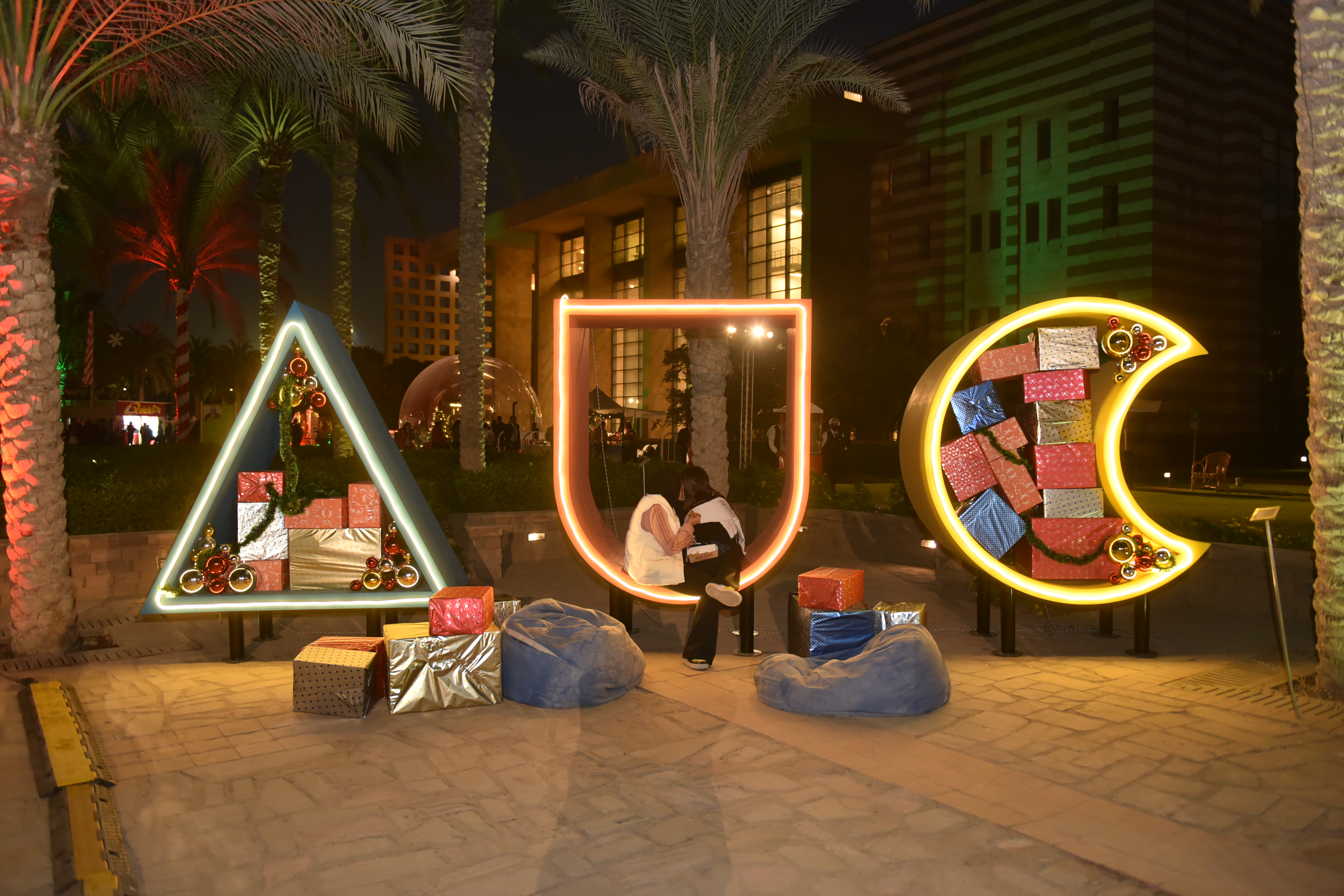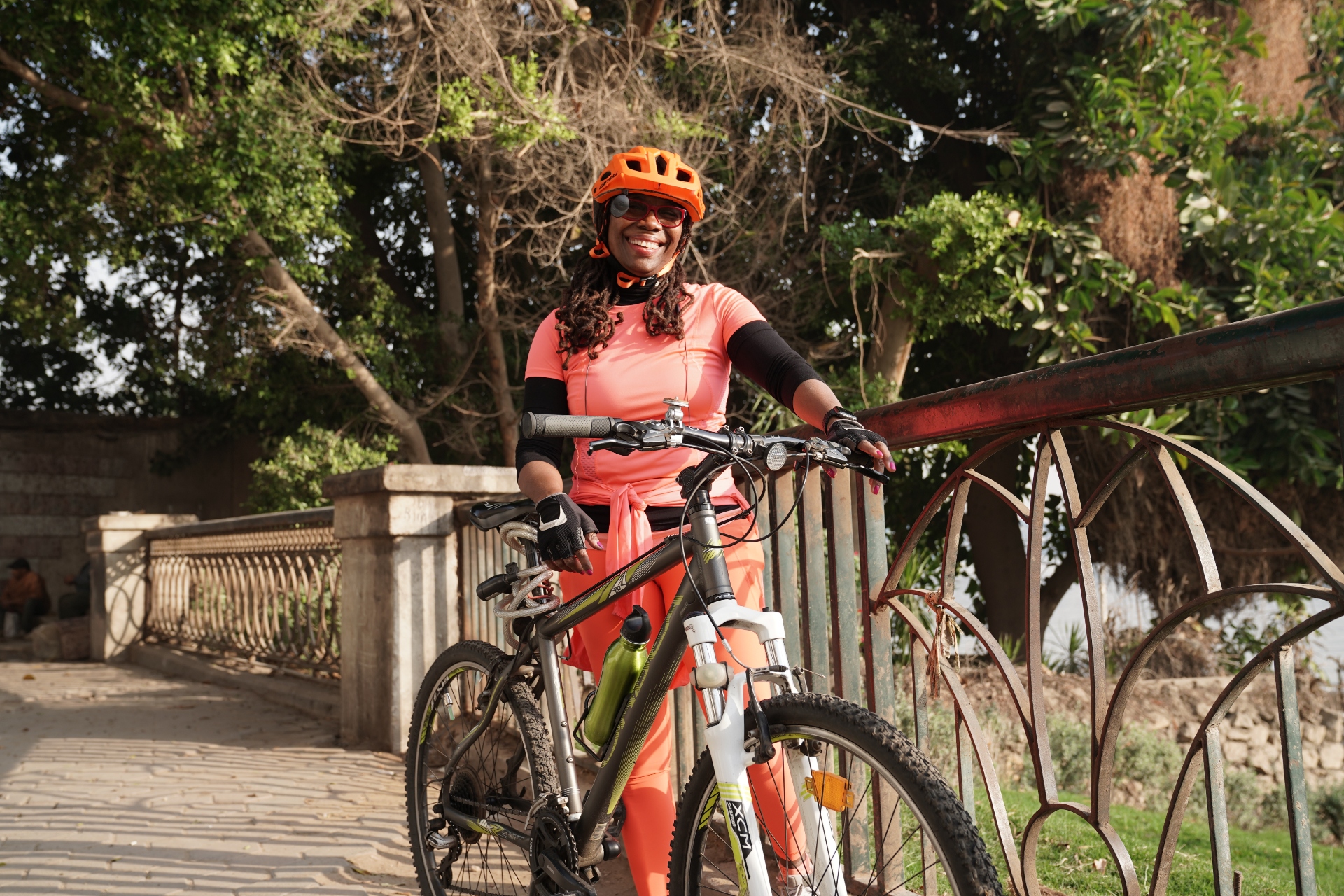By Elizabeth Lepro | This story appeared in the Fall 2017 edition of AUCToday.
As a freelance journalist in Shanghai, China, Shan Yang was faced with a tough task: to write about a region she never visited.
Yang found it especially difficult to play the messenger in China, where Middle East literacy is low, she said. “During the one year I worked in China, from 2015 to 2016, the major things I reported on or analyzed were about refugee issues and terrorism,” Yang recalled. “It made it seem like it was a mess in the Middle East. It was not long before I realized that I was at odds with my readers. They criticized my writing when I spoke out for other religions or for refugees.”
So Yang came to Cairo. She joined more than 300 international students on campus at AUC, first as a student in the Arabic Language Intensive Program in 2016 and now as a master’s student, pursuing a degree in Middle East studies. “I have to be here,” Yang said, punctuating the thought with her hands. “To know the facts.”
Each international student — from the United States suburbs to the edges of the African continent — comes to AUC with a purpose: to learn Arabic, to choose a field of study not offered in universities at home or to explore the beginnings of civilization up close. Many of them get more than what they expected.
Meet four such international students at AUC, who describe in their own words why they’re here and what knowledge they’re bringing back home. Yang came to Cairo to broaden her understanding of the region. Amir Ben Ameur has discovered a knack for policy and economics. Nour Elhouda Bouzahzah, who studied abroad in Washington, D.C. at a pivotal moment in American history, found her ideas shifted by international exposure. Erick Dokalahy, the only student from Madagascar at AUC, wants to learn how best to preserve fresh food grown in his country.

Shan Yang
Middle East Studies Graduate Student, China
I am from a small village in China, so they didn’t understand my decision to come here. Even though my family supports me studying abroad, they still said, “Why not Europe? Why not the United States? Why are you going to Egypt?” They have major misunderstandings. To be honest, even when I was in China, I had almost no Muslim friends. Minorities in Shanghai are relatively few. Shanghai has about seven small mosques, but only when they go there to pray do they wear scarves. They are under huge social pressure not to.
People who live here must think it is ridiculous to have to prove themselves as “normal.” But the first thought in my mind was to “normalize” Islam and the Middle East. It’s normal to wear a scarf, to pray five times a day and to go to a mosque — and it’s normal to choose not to do any of those things. People here care about family, safety, inflation, graduation and jobs, just like people elsewhere. The deeper I go into society, the more strongly I feel that we belong to one common community. Nationality, ethnicity, language, faith — these should never be obstacles for us to be united. Now, although I have lived in Shanghai for eight years, I call Cairo home. I feel more relaxed in Cairo and have developed a good sense of humor here. I like drinking tea with sugar or lemon or mint.
I want to bring this knowledge, this sense of shared community — and maybe even a new way of drinking tea — back with me to China, where we have many U.S. or European study experts, but lack people who know about this area. We should have more professors who have lived here for some time. InshaaAllah, I will return to China to do this.

Amir Ben Ameur
Economics Senior, Tunisia
Tomorrow’s Leaders Scholarship Recipient
I used to be part of civil society in Tunisia. I was a blogger before the revolution. Afterward, I noticed a lot of shifts, not only in the country, but in myself.
I got a scholarship from the U.S. Department of State to attend AUC, and I came because the School of Business here is one of the best. Honestly, after these years, I have learned so much from AUC.

I’ve taken courses that have changed the way I see the world. Before my education here, I used to just criticize and complain. Now, I’m giving recommendations. I’m trying to solve problems. I want to offer constructive criticism. I was telling my professor recently that now I can read parliamentary budget line proposals and can do analysis. I understand what they mean. I have different ideas now about politics and the economy as systems that regulate individual lives. It’s healthy to be skeptical about these systems, but I believe that we must suggest good alternatives and young people should be engaged and work to become responsible citizens capable of making change.
I believe in the importance of international work. I am currently a post-conflict adviser in the United Nations-Habitat Youth Advisory Board and have been previously involved with the United Nations Development Programme. We Youth, my nonprofit in Tunisia under the National Youth umbrella, is one of the biggest youth NGOs in the Middle East and North Africa region. We work a lot on engagement, involving youth in socioeconomic political uplifting. We work on decentralization, elections, political accountability with Parliament and engaging youth in democracy. Having a liberal arts education here has helped me make a healthy transition from a radical to a practical mindset. I want to tell other young people: You’re wise enough. Start engaging and acting instead of agonizing and rejecting. Idleness won’t lead to any improvement.

Erick Dokalahy
Food Chemistry Graduate Student, Madagascar
My life has always been driven by inspiration, and my decision to come to Cairo was too.
At an early age, my love for manufacturing science was nurtured by a TV documentary series, which triggered my interest in food processing. We produce a lot in Madagascar, but we do not produce raw material for food; we export it. So this is a burden for the country. That triggered my interest in agricultural science and galvanized me to become what I call an “ambitious food technologist.” That’s why I am here, studying food chemistry at AUC.
I hope to establish my own startup on fortified food one day. I want to participate in the fight against food insecurity by making high-quality, locally produced and affordable food for the Malagasy people. No matter where I end up, I’ll use the skills and experiences I’ve gained at AUC to pass the torch to the next generation.
Here at AUC, everything is different from what I’ve experienced before. There is an emphasis on the student’s well-being and personal development, not just academic achievement. I always keep myself busy volunteering in extracurricular activities, such as being the Graduate Student Association representative in the University Senate, a member of the Chemistry Club and Black Student Association, as well as a teaching assistant in the School of Sciences and Engineering.
Being out of one’s comfort zone is always difficult. When I came to Egypt, I had to manage my finances, learn Arabic to be able to deal with the basic things in my everyday life and make new friends — all while focusing on my studies. They say “life is the best teacher,” and I think that’s completely true. Since I started my international student life journey here at AUC, I’ve had a mind shift and new vision of how things should be in my country.

Nour Elhouda Bouzahzah
Business Administration Senior, Algeria
Tomorrow’s Leaders Scholarship Recipient
As a study-abroad student at the American University in Washington, D.C., I met people who have different arguments and thoughts, and heard them explain their points of view. It was really enriching. In my dorm, I got to interact with a lot of Americans, and we talked about politics. They had never traveled to Africa, so they had a different view of the continent. We discussed women’s issues and other topics.
What really impacted me was the Women’s March in Washington, D.C. It was incredible. Everyone had these pink hats, and they were marching literally throughout all of D.C. The metro was so crowded you could not get on.
All the women were in solidarity with each other. We were all repeating the same words and walking together. I have never experienced this anywhere else. This peaceful march reinforced my ideas of women’s empowerment.
The Women’s March also reminded me of the startup that I worked for a year ago, ScaleUp Ventures, which was founded by a female CEO. We weren’t a lot of people at ScaleUp, only five, but the CEO promoted hiring women. I liked the idea.
My goal is to establish my own startup that would employ more women while also doing something beneficial for my country. I will make sure to transfer all the priceless knowledge that I learned at AUC and in Washington, D.C. to young people in Algeria. My startup will be built for youth, by youth.





Leave a Reply